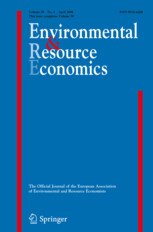Given the vast uncertainty surrounding climate impacts, meta-analyses of global climate damage estimates are a key tool for determining the relationship between temperature and climate damages. Due to limited data availability, previous meta-analyses of global climate damages potentially suffered from multiple sources of coefficient and standard error bias: duplicate estimates, omitted variables, measurement error, overreliance on published estimates, dependent errors, and heteroskedasticity. To address and test for these biases, we expand on previous datasets to obtain sufficient degrees of freedom to make the necessary model adjustments, including dropping duplicate estimates and including methodological variables. Estimating the relationship between temperature and climate damages using weighted least squares with cluster-robust standard errors, we find strong evidence that duplicate and omitted variable biases flatten the relationship. However, the magnitude of the bias greatly depends on the treatment of speculative high-temperature (>4 ◦C) damage estimates. Replacing the DICE-2013R damage function with our preferred estimate of the temperature–damage relationship, we find a three- to four-fold increase in the 2015 SCC relative to DICE, depending on the treatment of productivity. When catastrophic impacts are also factored in, the SCC increases by four- to five-fold.

